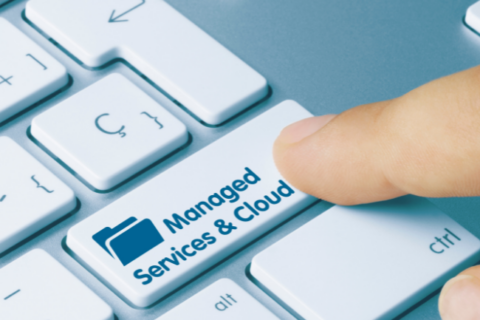Cloud Security: Protecting Business Data in the Cloud
More and more businesses are utilizing cloud services to create better user experiences, store and share business data, and create more collaboration. While it may seem easy to subscribe to a cloud service, there are inherent risks to consider. In this article we’ll explore best practices to configure and protect your business and ensure cloud security of your business’ most valuable information – your data!
Is the Cloud Secure?
Many people think that cloud services are private and secure. Most providers tout, in their service agreements or EULAs, that the data they store is encrypted or private, but it’s the fine print that users must read carefully. Businesses must thoroughly evaluate the ULA to determine 1) who owns the data, 2) how the data is encrypted and/or protected 3) what rights you may be forfeiting within the ULA and 4) who has a right to access your data.
According to ComputerWorld, “in 2012 alone Google received 21,389 requests for information affect 33,634 user accounts. During the same period, Microsoft received 70,665 requests affecting 122,015 accounts.” Since so much data is stored in the cloud, it is also what makes cloud services a popular target of hackers. In actuality, many cloud service providers only cover the security of the cloud itself, not the customer data. Cloud providers consider the cloud a shared responsibility and many businesses, and their users, don’t understand their role in this relationship. It’s important to have oversite, within your organization, to ensure that best practices and protocols are established to secure valuable business data. This responsibility typically falls on your internal IT staff, your outsourced Managed Services Provider, or a valued technology advisor. So, it’s important to ensure that the people or companies responsible for this oversight are properly trained and enlisting active, ongoing measures to ensure that your cloud data is properly protected.
Top Cloud Security Issues
Cloud security protocols are unique for every business. Why? Because every business uses the cloud, their data, and a variety of cloud services, differently. Cloud security issues, therefore, must be evaluated based on your infrastructure, configuration of services, and how your users share files through the cloud. Cloud services such as SaaS, IaaS, and even private clouds are only as secure as both you and the provider make them. Endpoint security, mobile devices and apps may put your data at further risk, since users may unknowingly authorize an app to access their data, or even your data. This is where a valued technology partner or technology advisor can help! Here are the top 3 security issues, based on your cloud services:
Potential SaaS Cloud Security Issues
- Theft from data from a cloud application
- Inability to monitor data in transit to and from cloud applications
- Lack of staff with the skills or training to manage security (think one IT guy supporting 100 users)
Potential IaaS Cloud Security Issues
- Lack of consistent security controls over multi-cloud and on-premise environments
- Incomplete control over who can access sensitive data
- Inability to monitor cloud systems and applications for vulnerabilities
Potential Private Cloud Issues
- Lack of security controls over traditional server and virtualized infrastructures
- Complexity of infrastructure and lack of time, resources, or skillset to properly monitor
- Lack of visibility for security protocols at a data center
Ways to Protect Your Data in the Cloud
As you can see, the overriding theme is that you cannot rely on a cloud provider to protect your business. You must be proactive to secure your data, educate your users, and implement security measures that will provide the greatest level of protection. Regardless of how small or large your business is, an outside technology advisor can be your best and most valuable resource. These consultants can even serve as great resources to the most tech-savvy CIOs and IT departments who are trying to establish best practices while keeping up with ongoing threats. Small to medium sized businesses, in particular, can benefit from enterprise level service for smaller operations and cloud services.
Conscious Networks provides a holistic approach to technology in and beyond your office and can advise you on the best approach for your unique business needs. Contact Conscious to schedule a technology consultation.



